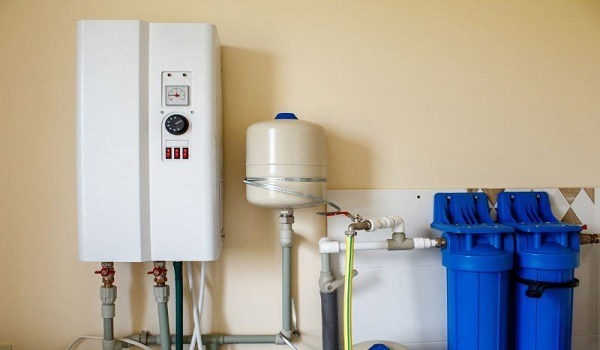
A water heater is an essential appliance in every home or office. It provides hot water for various purposes, including bathing, cleaning, and cooking. However, like any other appliance, water heaters require regular maintenance to ensure optimal performance and prevent unexpected breakdowns.
In this article, we provide a comprehensive guide to water heater maintenance and repair. After reading this, you will be able to tell what you can DIY and what requires your Plumber in Brighton.
1. Understand Your Water Heater Type
The first step in water heater maintenance is understanding the type of water heater you have. There are two main types:
- Tankless water heaters
- Storage tank water heaters
Tankless systems heat water as it flows through the unit, while storage tank water heaters store hot water in a tank until you need it. Knowing the type of water heater you have will help you understand how it works and what maintenance it requires.
2. Check the Pressure Relief Valve
The pressure relief valve is a safety feature that prevents the tank from exploding due to high pressure. So, it is important to check the valve periodically to ensure it is functioning correctly.
To check the valve, turn off the power or gas supply to the water heater, locate the valve on the top or side of the tank, and lift the lever halfway. If you hear a hissing sound or see water coming out of the valve, the valve is working correctly.
If it’s your first time and you can’t find the valve, ask your plumber in Brighton to point at it and show you how to drain it.
3. Drain and Flush the Tank
Sediment buildup is a common problem in water heaters that can reduce efficiency and damage the tank. To prevent this, plumbers in Brighton recommend draining the tank at least once a year.
How to do it?
- First, turn off the power or gas supply to the water heater.
- Attach a hose to the drain valve at the tank’s bottom.
- Now open the valve to drain the tank.
Here’s how you flush the tank once a year to remove these deposits and this extends the lifespan of your water heater.
4. Inspect the Anode Rod
The anode rod is a sacrificial metal rod that attracts corrosive elements in the water to prevent rusting of the tank. Over time, the rod can become corroded and require replacement. Plumbers in Brighton recommend inspecting the anode rod at least once a year and replacing it if it is more than 50% corroded.
5. Insulate the Pipes and Tank
Insulating the pipes and tank helps reduce heat loss and improve efficiency. It is particularly important for older water heaters that may not be well-insulated.
You can buy pipe insulation at any hardware store and easily install it by wrapping the pipes with it. Tank insulation is also available at hardware stores and you install it the same way as pipe insulation— by wrapping the tank with it.
6. Check for Leaks
Leaks in your water heater tank or pipes can cause significant damage if left untreated. Check for leaks around the tank, pipes, and connections regularly. If you notice any signs of a leak, such as water pooling around the tank or damp drywall or flooring, contact a plumber in Brighton immediately.
7. Hire a Professional for Repairs
If you encounter problems with your water heater, such as leaks, strange noises, or a lack of hot water, it is best to hire a professional plumber in Brighton for repairs. Attempting to repair a water heater yourself can be dangerous and can result in further damage to the unit.
A professional plumber has the necessary skills and experience to diagnose and repair water heater problems safely and effectively.
8. Replace Old Water Heaters
Water heaters have a limited lifespan and will eventually need replacements. The average lifespan of a water heater is 8 to 12 years, depending on the type and model. If your water heater is more than 10 years old or showing signs of wear and tear, such as leaks or rust, it is recommended to replace it with a new water heater.
9. Schedule Regular Maintenance
While some water heater maintenance can be done DIY-style, others require professional attention. To ensure your water heater is in top condition, schedule regular maintenance with a licensed Plumber in Oakleigh. They can assess the condition of your water heater and recommend any necessary repairs or replacements.
This is the best way to tackle water heater problems even before they arise.
10. Keep the Heater Clean
Dirt, dust, and debris can all build up on your water heater over time. Keeping it clean can help prevent damage and maintain efficiency. Wipe down the outside of your water heater with a clean cloth regularly to prevent the buildup of debris.
Conclusion
This is how you maintain your water heater in a good condition. Essential care such as this even extends the lifespan of your water heater. Thus, make sure to do the needful and seek the help of your plumber in Brighton when required.
If you ever need repairs or maintenance for your plumbing system, you can contact Doyle Plumbing.




